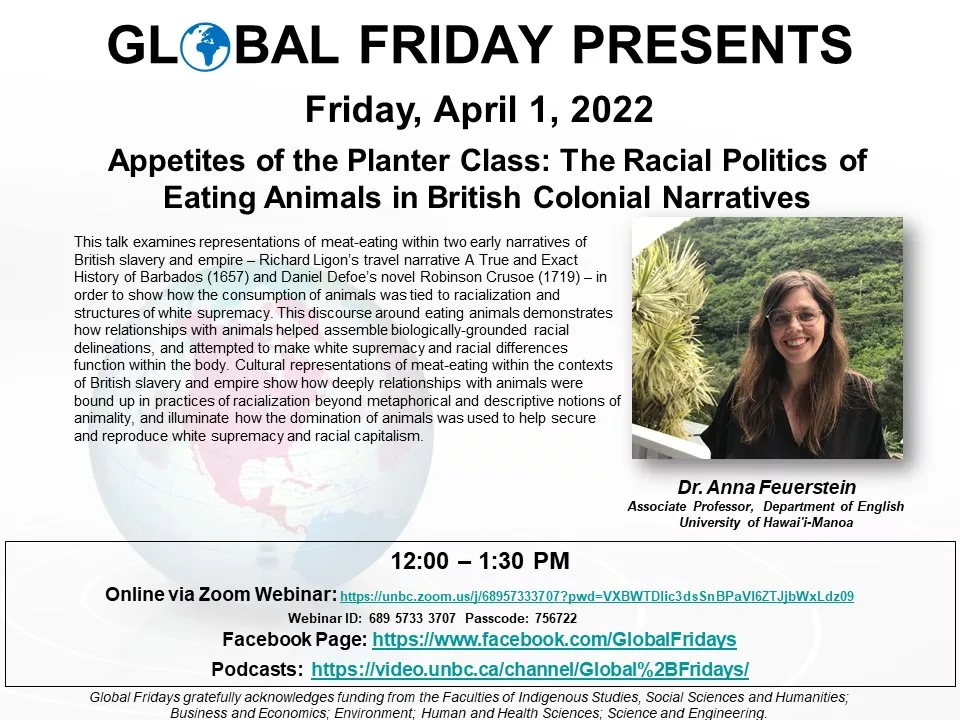Appetites of the Planter Class: The Racial Politics of Eating Animals in British Colonial Narratives

Dr. Anna Feuerstein
Associate Professor, Department of English
University of Hawai’i Manoa
ABSTRACT: This talk examines representations of meat-eating within two early narratives of British slavery and empire – Richard Ligon’s travel narrative A True and Exact History of Barbados (1657) and Daniel Defoe’s novel Robinson Crusoe (1719) – in order to show how the consumption of animals was tied to racialization and structures of white supremacy. This discourse around eating animals demonstrates how relationships with animals helped assemble biologically-grounded racial delineations, and attempted to make white supremacy and racial differences function within the body. Cultural representations of meat-eating within the contexts of British slavery and empire show how deeply relationships with animals were bound up in practices of racialization beyond metaphorical and descriptive notions of animality, and illuminate how the domination of animals was used to help secure and reproduce white supremacy and racial capitalism.
SPEAKER'S BIO: My primary teaching and research interests include 18th and 19th-century British literature and culture, histories of British empire and slavery, posthumanism, and Black studies. Within 18th century literature and Victorian studies, my work focuses on animal-human relationships, liberalism, empire, and the cultural histories of slavery. I am particularly interested in formulations of animal subjectivity, the politics of pet keeping, and the racialization of animal-human relationships alongside the construction of racialized animality.
Online via Zoom Webinar: https://unbc.zoom.us/j/68957333707?pwd=VXBWTDlic3dsSnBPaVl6ZTJjbWxLdz09
Webinar ID: 689 5733 3707 Passcode: 756722
Global Fridays gratefully acknowledges funding from the Faculties of Indigenous Studies, Social Sciences and Humanities; Business and Economics; Environment; Human and Health Sciences; Science and Engineering.